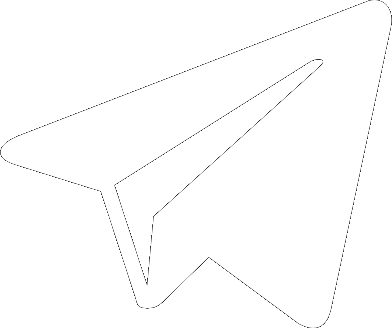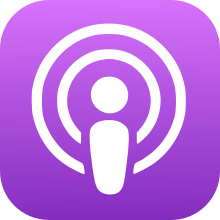DOCTOR INFORMATION
Writing your Personal Statement
A personal statement is an essay, which forms part of the medical school application process, about your achievements and aspirations.
Key facts:
 4000 characters (including spaces) 💻
4000 characters (including spaces) 💻
 47 lines of text 📝
47 lines of text 📝
 Approximately 500 words/1 side of A4 📃
Approximately 500 words/1 side of A4 📃
 It will be scored based on the admissions criteria , alongside your reference ✅
It will be scored based on the admissions criteria , alongside your reference ✅
 Each medical school places a different weighting on the personal statement in the application process🏨
Each medical school places a different weighting on the personal statement in the application process🏨

What should a personal statement include?
 Your motivations for studying medicine 🧠
Your motivations for studying medicine 🧠
 Show that you are well informed about the nature of a career in medicine🏨
Show that you are well informed about the nature of a career in medicine🏨
 Demonstrate your commitment to caring for people e.g. work experience 💗
Demonstrate your commitment to caring for people e.g. work experience 💗
 Your personal interests
Your personal interests
 Your commitment to your school or college community
Your commitment to your school or college community
 Personal achievements, academic and otherwise ✅
Personal achievements, academic and otherwise ✅
Structuring your personal statement:
 Introduction: your motivations for studying medicine
Introduction: your motivations for studying medicine
 Section 1: work experience and voluntary work 🏨
Section 1: work experience and voluntary work 🏨
 Section 2: additional achievements, experience and interests
Section 2: additional achievements, experience and interests
 Conclusion: closing statement
Conclusion: closing statement
Introduction:
 Explain why you want to study medicine 🧠
Explain why you want to study medicine 🧠
 This should grab the reader’s attention❗
This should grab the reader’s attention❗
 An anecdote about the moment you knew medicine was the career for you is a great idea
An anecdote about the moment you knew medicine was the career for you is a great idea
 Medicine is a challenging course, and so, it is important to demonstrate your genuine passion and drive 🏨
Medicine is a challenging course, and so, it is important to demonstrate your genuine passion and drive 🏨
 Make it emotive and memorable 💗
Make it emotive and memorable 💗
 E.g. the time you witnessed medical care being administered in an emergency/a life-changing book you read/a medical professional you spoke to etc. 🏨
E.g. the time you witnessed medical care being administered in an emergency/a life-changing book you read/a medical professional you spoke to etc. 🏨
Section1:
 Discuss the work experience/volunteering you have completed (click here to see our work experience blog) 🏨
Discuss the work experience/volunteering you have completed (click here to see our work experience blog) 🏨
 Make sure you reflect on what you learned and the skills you have gained from it
Make sure you reflect on what you learned and the skills you have gained from it
 The introduction will be an emotive section in which you describe your passion, it is now time to explain how you have acted on this (seeking work experience opportunities)
The introduction will be an emotive section in which you describe your passion, it is now time to explain how you have acted on this (seeking work experience opportunities)
 Long term volunteering or work experience shows your commitment to medicine 🏨
Long term volunteering or work experience shows your commitment to medicine 🏨
 Do you read medical literature regularly, or have you read some relevant books to enhance your knowledge? This will fit into this section brilliantly
Do you read medical literature regularly, or have you read some relevant books to enhance your knowledge? This will fit into this section brilliantly
Section 2:
 Discuss your academic achievements, extra-curricular activities and interests
Discuss your academic achievements, extra-curricular activities and interests
 Make sure you reflect on what you have learned and the skills you have gained from it
Make sure you reflect on what you have learned and the skills you have gained from it
 E.g. academic achievements, hobbies/clubs, gap year activities, travel, non-medical work experience, personal achievements etc.
E.g. academic achievements, hobbies/clubs, gap year activities, travel, non-medical work experience, personal achievements etc.
 This section is where your can really make it unique and let the admissions staff get an insight into you and what you could bring to the medical school/ a medical career
This section is where your can really make it unique and let the admissions staff get an insight into you and what you could bring to the medical school/ a medical career
 Consider the transferrable skills you can bring to medicine 🏨
Consider the transferrable skills you can bring to medicine 🏨
 Stick to more recent examples and be sure to explain how they are relevant e.g. being on a football team enabled you to develop your team work skills which you think are very important for a career in medicine
Stick to more recent examples and be sure to explain how they are relevant e.g. being on a football team enabled you to develop your team work skills which you think are very important for a career in medicine
 Your hobbies and interests are important as they show that you are a well rounded individual who will be able to maintain an appropriate work-life balance 💗
Your hobbies and interests are important as they show that you are a well rounded individual who will be able to maintain an appropriate work-life balance 💗
Conclusion:
 This should draw your personal statement to a close
This should draw your personal statement to a close
 Keep it short
Keep it short
 It should reiterate why you want to study medicine and why you are a suitable candidate 💗
It should reiterate why you want to study medicine and why you are a suitable candidate 💗
 If you began your personal statement with a personal anecdote, a great technique is the utilise a cyclical structure, going back to this story at the end 🔄
If you began your personal statement with a personal anecdote, a great technique is the utilise a cyclical structure, going back to this story at the end 🔄
 Make sure it is memorable and leaves a positive lasting impression
Make sure it is memorable and leaves a positive lasting impression

Reviewing your personal statement:
 This is one of the most important steps which you must not neglect❗
This is one of the most important steps which you must not neglect❗
 You should review your personal statement continuously throughout the writing process 🕵
You should review your personal statement continuously throughout the writing process 🕵
 Once you have ‘finished’ writing it, you must continue to review it ✅
Once you have ‘finished’ writing it, you must continue to review it ✅
 Read it over and over again, read it out loud etc.🤓
Read it over and over again, read it out loud etc.🤓
 Ask others to read it, getting other people’s opinions can be very useful as they may notice mistakes you do not and suggest potential improvements 🤓
Ask others to read it, getting other people’s opinions can be very useful as they may notice mistakes you do not and suggest potential improvements 🤓
 The more you review and proof read your personal statement the better it will be 🕵
The more you review and proof read your personal statement the better it will be 🕵
 Check the spelling, punctuation and grammar 🕵
Check the spelling, punctuation and grammar 🕵
 Check it is concise and remove any superfluous sentences or sections (every word should be necessary and adding something to your personal statement) 💻
Check it is concise and remove any superfluous sentences or sections (every word should be necessary and adding something to your personal statement) 💻
 Make sure you use a varied vocabulary (do not use a word repeatedly e.g. passion❗)
Make sure you use a varied vocabulary (do not use a word repeatedly e.g. passion❗)
Graduate entrants:
 The personal statement for graduate entry medicine is very similar to undergraduate entry
The personal statement for graduate entry medicine is very similar to undergraduate entry
 The difference is that in the work experience section you may have a prior career to discuss 🏨
The difference is that in the work experience section you may have a prior career to discuss 🏨
 In the academic achievements section you can discuss your degree❗
In the academic achievements section you can discuss your degree❗
Oxbridge applicants:
 Students applying to Oxbridge will also be applying to other medical schools, and so, the above personal statement advice is still relevant
Students applying to Oxbridge will also be applying to other medical schools, and so, the above personal statement advice is still relevant
 However, we advise including: strong scientific content, extensive work experience, leadership evidence and an emphasis on your personal interests 🏨
However, we advise including: strong scientific content, extensive work experience, leadership evidence and an emphasis on your personal interests 🏨
Top Ten Tips:
- Proof-reading and reviewing your personal statement is key 🧠
- Make sure you reflect on everything you discuss (never just list what you have done, explain what skills you gained from it/what you learned and how this beneficial for your future medical career)💻
- Make sure it is personal and emotive
- Do not exceed the character limit❗
- Make sure every word is relevant and purposeful
- Tell the truth, you may be questioned on it at interview ✅
- Keep sentences short and do not waffle
- Avoid using humour as admission tutors may not find it funny 😂
- Try to get your sincerity across
- Avoid cliches
Summary:
- Introduction: explain your motivations
- Section1: describe your work experience and volunteering
- Section 2: describe your academic achievements and personal interests
- Conclusion: loop back to the beginning, re-emphasising your motivations now with the evidence about your experience
- Make sure you reflect on all of the examples you give
- Proof reading and reviewing your personal statement is vital













